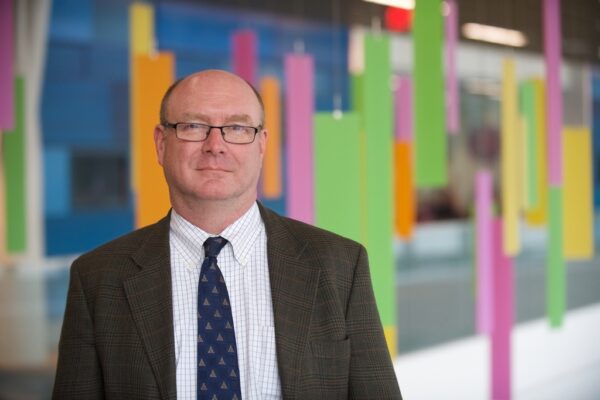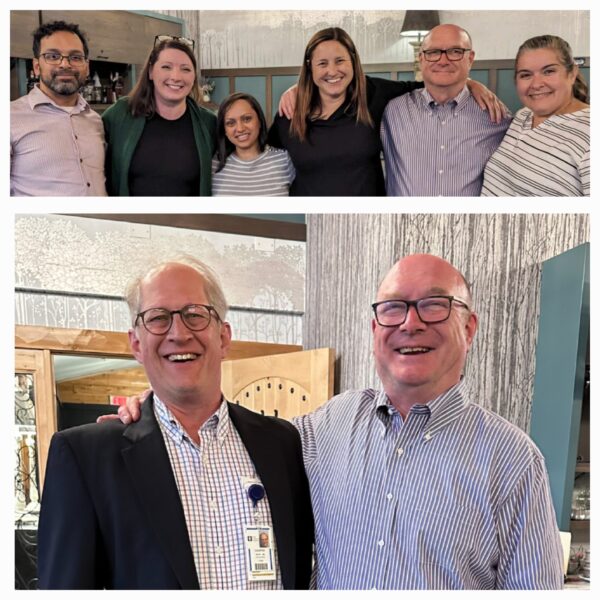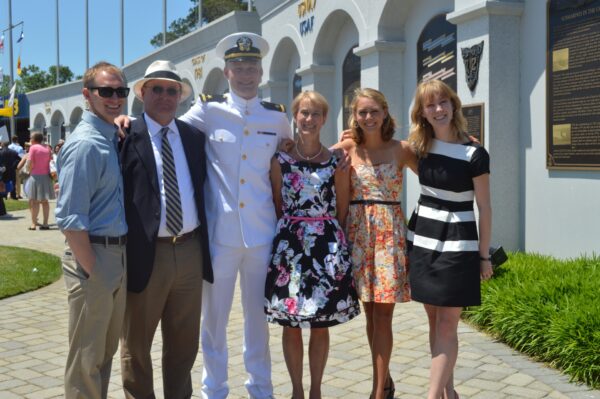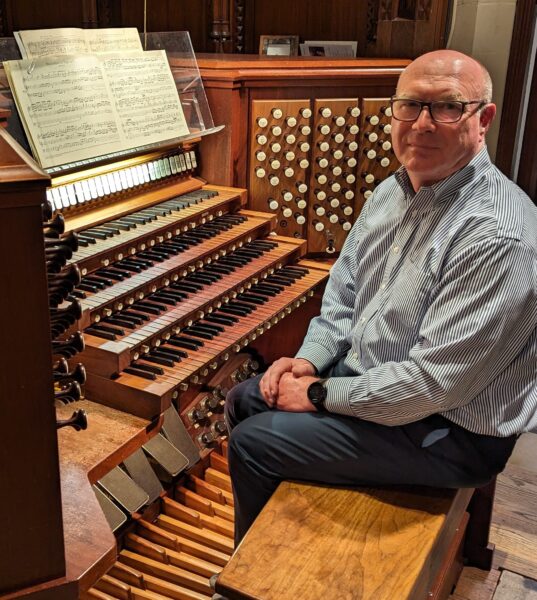
Dr. Steven Kuerbitz, pediatric hematologist-oncologist at Akron Children’s, retires on June 30. For more than 30 years, Dr. Kuerbitz has been a highly regarded physician and researcher.
Steven Kuerbitz, MD, pediatric hematologist-oncologist at Akron Children’s, has never shied away from challenges. When he was young, Dr. Kuerbitz, his parents and siblings attended a church that had just installed a new pipe organ. He loved its sound. Although he was only 15, he decided he wanted to learn to play this grand instrument, an avocation he continues. In fact, he recently performed at a Cleveland, Ohio church.
He was equally ambitious when it came to his career. As a first-year medical student, Dr. Kuerbitz viewed stained bone marrow under a microscope and was intrigued by stem cells and their ability to develop into many different cell types. His interest in the biology of normal blood cell development versus leukemia, where blood cell development goes wrong, prompted him to become a pediatric hematologist-oncologist and oncology researcher. At Akron Children’s Showers Family Center for Childhood Cancer and Blood Disorders, Dr. Kuerbitz used his clinical and problem-solving skills to make a positive difference in the lives of children and their families.
Over the years, the most challenging part of his job involved helping patients and their families deal with the worst crises of their lives. Those are the days when he found himself digging deep into his humanity.
“I steel myself before speaking and think, ‘Help me to be honest. Help me to be kind,’” Dr. Kuerbitz said. “I tell myself and those I work with – students, residents and fellows —even if we can’t cure the child, we can still help this family.”
After more than 30 years as a physician and researcher, the last 23 spent at Akron Children’s, Dr. Kuerbitz retires on June 30. He plans to travel with his wife, exercise, garden, play the piano and organ, cook and learn about and experience wine.
What brought you to Children’s?
I joined Akron Children’s to work as a pediatric hematologist/oncologist and focus on hematopoietic stem cell transplantation, which evolved into the Pediatric Stem Cell Transplant Program, and basic/translational research. Through our research and collaborative studies, particularly with Children’s Oncology Group, the world’s largest childhood cancer research organization, we’ve been able to help boost cancer survival rates in children and teens.

At Dr. Steven Kuerbitz’s retirement party, he enjoyed the festivities with his colleagues in the Akron Children’s Showers Family Center for Childhood Cancer and Blood Disorders. Top picture (from left): Drs. Prasad Bodas, Megan Sampson, Vanisha Patel, Courtney Culbertson, Dr. Kuerbitz and Jeanne Konowal. Bottom photo: Drs. Cooper White and Steven Kuerbitz.
What have your biggest contributions been while here?
Besides practicing at a high level of proficiency that is consistent with the standard across our division, I’ve helped ensure that the Pediatric Stem Cell Transplant Program is poised for growth, collaboration and further development.
I’ve also moved the research needle in Pediatric Hematology-Oncology, and maybe in the hospital, by doggedly insisting to anyone who would listen that, as a program and an institution, we needed to be broadly engaged in research.
How has Akron Children’s changed since you started here?
We’ve expanded by opening a Center for Childhood Cancer and Blood Disorders in Boardman and the Akron Children’s Cancer and Blood Disorders, Millersburg location.
What’s your most memorable moment at Akron Children’s?
Suffering a stroke while making weekend morning rounds in October, 2006. Initially, I couldn’t tie my shoes, button a shirt or cut my food. I never thought I would be able to play the piano or organ again. With the support of my wife, Carolyn, I regained function. It felt as if I was given a gift.

Dr. Kuerbitz’s family at his son’s graduation and commissioning ceremony at the United States Naval Academy. Shown from left: Jeff, Dr. Kuerbitz, Dan, Dr. Carolyn Kuerbitz, Catherine and Ellen.
With so many little children here, did someone or something especially touch your heart?
The one that stands out involved a newly admitted child, whose mother asked for his MRI results. We had just finished sign-outs and I took over the service for the weekend. Tragically, the MRI showed a highly aggressive brain tumor. I explained to this woman one minute after meeting her that her child had an inoperable brain tumor that was unlikely to respond to chemotherapy, might show some response to radiation therapy, but that the great likelihood was that her child was going to die within the next year. I sat with her while she cried. Then, she turned to me and told me how sorry she felt for me because I had to say this to someone I had never met before. It was, and still is, remarkable to me that a parent who was realizing every parent’s worst nightmare had the grace to convey compassion to the bearer of this terrible message.
Do you have any advice for people just starting at Children’s?
Maintain some scholarly activity, whether it’s research or medical education, quality improvement, whatever. It makes your career more interesting and satisfying and preserves your career options.
What couldn’t you live without?
The love and support of my wife and family.

Prior to his pipe organ recital at the Church of the Covenant in Cleveland, Ohio , Dr. Steven Kuerbitz poses for a photo. He is a classical organist. He also plays piano.
What music do you like?
I’m a classical music nerd who enjoys mostly the Baroque, high Classical and early-mid Romantic periods. I’m starting to explore piano jazz from the 1950s and 1960s. I started taking organ lessons again and am tackling the Bach organ canon.










